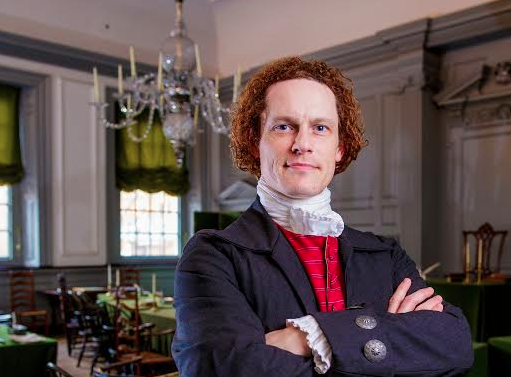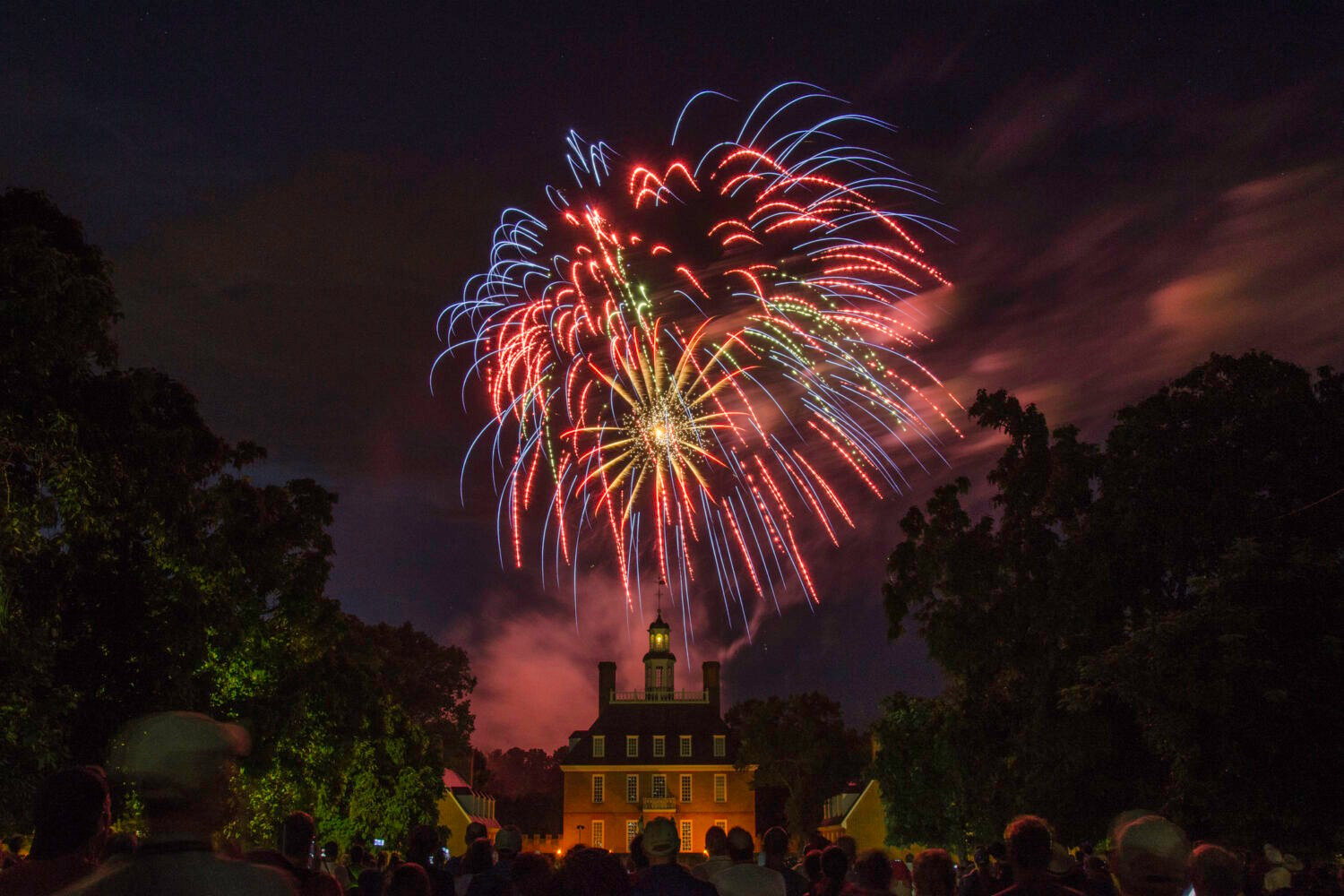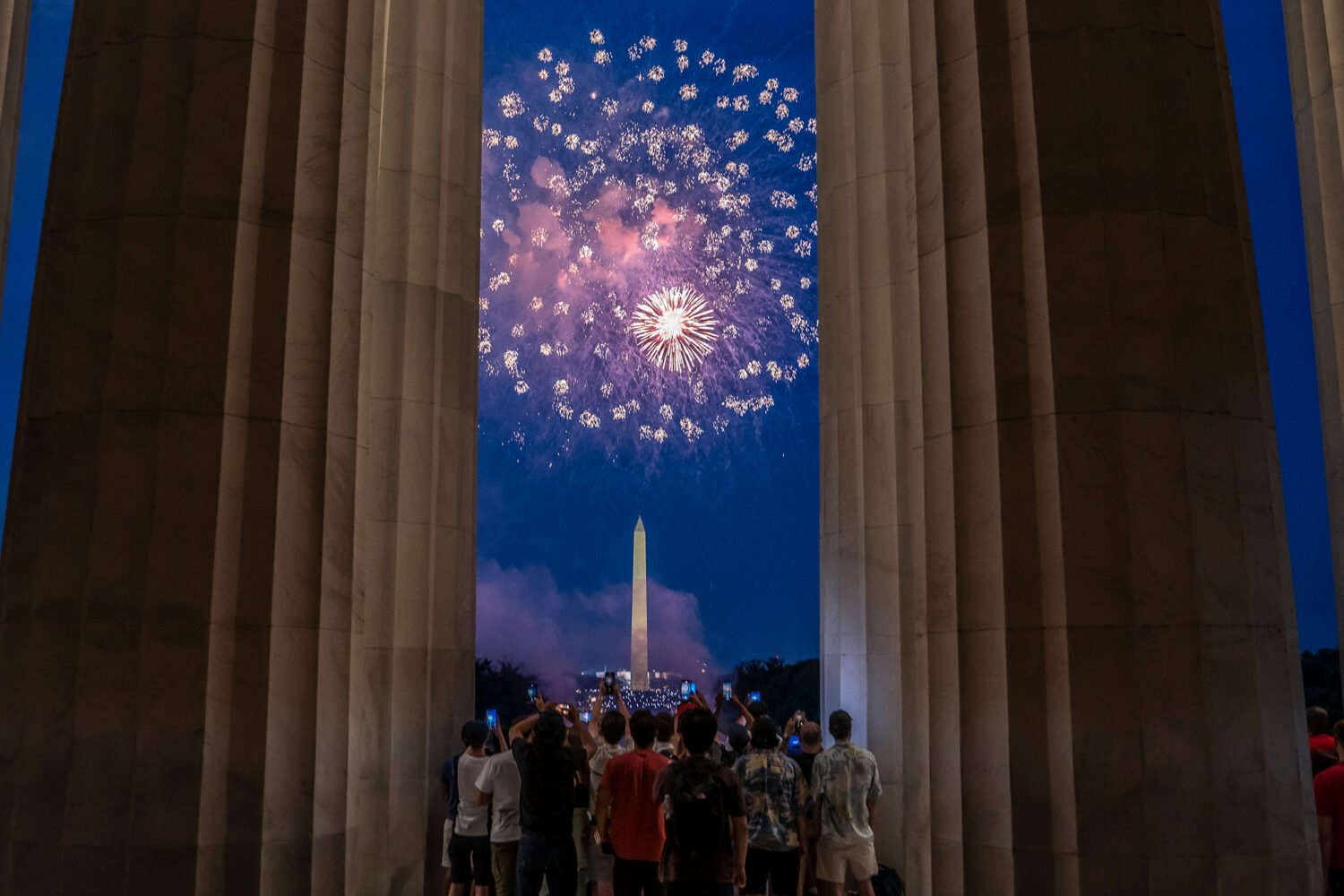For most people, July 4 is a day of picnicking, drinking, and maybe attempting to catch the fireworks if the drinking hasn’t knocked you out. But for people like Steve Edenbo, it’s one of the most important workdays of the year. Edenbo, a 42-year-old native of central Pennsylvania, has devoted the past 17 years of his life to embodying Thomas Jefferson.
“This is a great time to talk,” Edenbo says. “I’ve just got home from a debate with John Adams at the National Constitution Center.”
Edenbo’s clique includes some of the top historical actors—or interpreters, as they often call themselves—on the East Coast. And it should be no surprise that July 4 is their busy season. This weekend, Edenbo and others will be at the National Archives’ annual July 4 celebration. Besides Edenbo as Jefferson, there will be interpreters playing Abigail Adams, John Adams, Benjamin Franklin, John Hancock, George Washington, and Ned Hector, a free African-American soldier from Pennsylvania who fought in the Revolutionary War.
The actors, in character, will mingle with VIPs at a special breakfast and then congregate in the Archives’ main room for a dramatic reading of the Declaration of Independence. Surprisingly, the event is one of the few July 4 celebrations in DC that features in-person portrayals of the Founding Fathers.
Edenbo is one of the more accomplished interpreters around: He’s appeared on the History Channel and once matched wits with Stephen Colbert—but the National Archives event is still one of the highlights of his year. “It brings me home to what I’m doing,” he says.
To the general public, interpreters may seem to sprout up on July 4 and other patriotic holidays, but Edenbo’s job doesn’t stop after Monday. Most historical interpreters are independent contractors, and have to hustle their own gigs.
“I have zero stability,” Edenbo says.
A few big-name attractions like Plymouth Plantation in Massachusetts and Colonial Williamsburg—“CW” to those in the trade—offer year-round stable jobs (CW is considering hiring people to play Alexander Hamilton thanks to the craze around the Broadway musical about the first treasury secretary). But most of the world’s Jeffersons, Washingtons, and Lincolns are free agents. Many are based in Philadelphia, where work is steady around Independence Hall. But the profession also demands constant travel, as founders are in demand at everything from corporate training events to school functions across the country.
In addition to the constant hustling, it’s also tough to be really good at what Edenbo does. Like a stage actor, has to stay in character for hours at a time—but unlike most stage actors, he’s required to interact with audience members during the performance, which demands an exquisite knowledge of Jefferson that even Daveed Diggs can’t claim. And even though he’s often interacting with celebrities—he spent one July 4 chatting with Ken Burns, who’s no Jefferson dummy—Edenbo can’t ever get starry-eyed.
“It’s our job to be the opposite of people, in a way,” he says. “We’re paid to behave in a way that would otherwise be considered rude, like inserting ourselves into conversations with famous people and and then talking about ourselves.”
For Edenbo, the interpreter’s life was almost accidental. He was working in his mid-20s as an actor when a member of the American Historical Theater noticed his red hair and shapely jaw and thought, “That guy looks exactly like Thomas Jefferson.” Edenbo, a voracious reader, had the looks and the brains for the job—and 17 years later, he’s still donning the waistcoat and breeches.
Though Edenbo bears a striking resemblance to the Sage of Monticello, he doesn’t think of himself as a reincarnation.
“After decades walking in the shoes of one man, you can lose touch with reality,” he says. He’s seen it happen to other interpreters. Edenbo makes an effort to drop character when he’s not working, though friends chide him for subconsciously inserting Jeffersonian phrases into emails. His hobbies—hiking, reading, writing letters—allow him to take a break from work (but they also seem to resemble exactly how Jefferson spent his free time).
Edenbo’s job has been made more intense by the presidential election, which is both a thrill and a challenge for historical interpreters.
“Our integrity requires that we’re not speaking for ourselves,” he says. “We have to resist the temptation to use these founding fathers as mouthpieces for our own political opinions.” Edenbo gets regular questions about President Obama (to which he generally responds, “Who’s that? Is he Irish?”) So far, the Donald Trump questions have been mercifully light.
Other recent events—namely, Hamilton—have made it easier for Edenbo to connect with his audiences. Pop culture’s newfound interest in the Federalist Papers has given Edenbo license to incorporate more substantive material into his debates with his interpreter Hamilton friends. This is the first July 4 since Hamilton became a hit, but because the man himself wasn’t present for the signing of the Declaration, his interpreter won’t be reading at the National Archives event.
Not all of Edenbo’s offers are as high-brow as the National Archives event—it’s true, he says, that he does get the odd inquiry for a bachelorette-party appearance. These kinds of things sometimes pay well but are damaging to the long-term reputation of a historical interpreter, which is why Edenbo always declines. He was once contacted with a request to appear in a tourism commercial alongside other founding father interpreters and a bunch of scantily clad women. He said no before even getting a quote on an appearance fee.
“That’s an image thing,” he says. “If I did it, Monticello would certainly never call me again!”
As gigs go, how does the National Archives pay? As he dodges the question, Edenbo slips into his alter ego’s cadence: “I can say that any government institution is bound by the vigilance of the public, which means rightfully looking at expenditures and making sure that nothing seems excessive.”



















